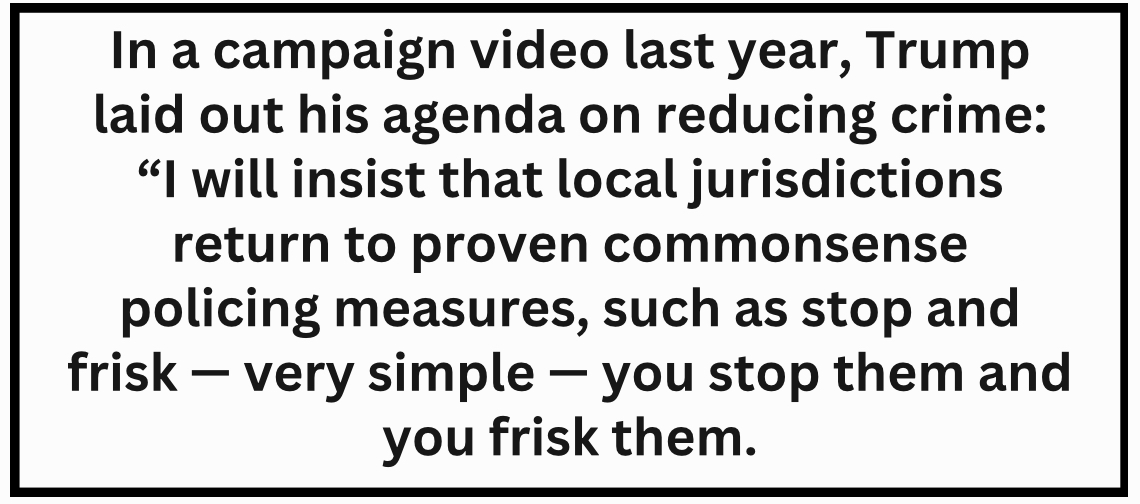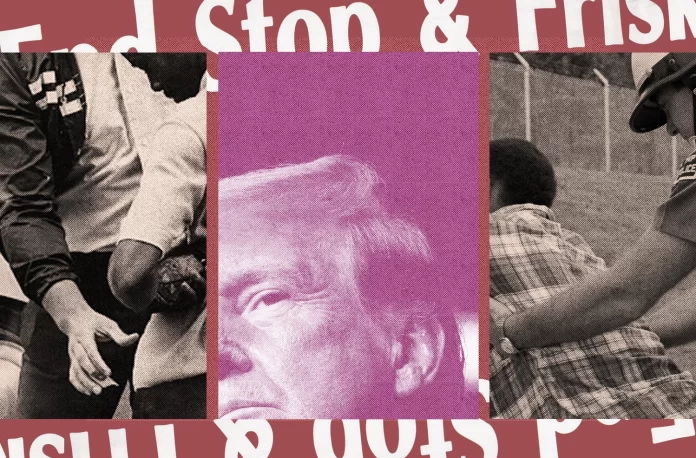More than 2 million Black men have been stopped and frisked by police before the practice was deemed unconstitutional
The Night Dreams Shattered: Travis Hunter’s Encounter and Trump’s Promise to Reinstate Stop-and-Frisk
Travis Hunter was never one to forget a milestone, especially not the day he signed his first major book deal. The streets of New York, bustling with life, felt like a celebration of his success. His thoughts wandered to the possibilities ahead as he stepped out of his hotel, eager for a night that would mark the beginning of his literary journey. Little did he know, the evening would leave an indelible scar.
Three officers emerged from an unmarked car, eyes sharp and voices commanding. “Hands against the wall!” they barked. Hunter’s joy was replaced with confusion and fear. His mind raced, struggling to make sense of the abrupt hostility. The words that followed stung more than the rough treatment. “Shut up, n—–r,” one officer spat, reducing his dignity to rubble in an instant.

Hunter complied, his body stiff against the cold, indifferent wall. Another officer rifled through his pockets, pulling out his wallet. The examination of his Georgia driver’s license seemed to last an eternity before it was tossed back at him with disdain. Without explanation or apology, the officers returned to their car and drove off, leaving Hunter stunned and shattered.
He stood there, on the cusp of a dream turned nightmare, unable to move. The celebration dinner was a distant memory now, replaced by a gnawing sense of violation. Reporting the incident felt pointless; the system that allowed such an act to occur would hardly be the one to rectify it. He returned to his hotel room, appetite gone, anger and humiliation mingling in a toxic mix that would linger for years.
Fast forward to the present, and Hunter finds himself reliving that dark day as former President Donald Trump pledges to reinstate stop and frisk. “Very simple,” Trump declares on his campaign website, ignoring the complexities and human costs associated with the policy. For Hunter and millions of Black men, it’s a painful reminder of a reality they’ve been fighting to change.
Trump’s strategy is baffling to many. How could he claim to court Black voters while advocating for a practice that disproportionately harmed them? It’s a question that haunts Hunter, especially as he watches some Black entertainers throw their support behind Trump, and hears about Black conservatives like Shelley Wynter expressing ambivalence about the policy’s potential return.
Wynter’s cautious endorsement of stop and frisk highlights the underlying tension. “In theory, it’s not a bad plan,” Wynter says, acknowledging the need for nuanced execution. Yet, history has shown that the policy, in practice, often devolves into unchecked authority and racial profiling. Wynter’s concerns reflect a broader unease, even among Trump supporters who understand the risks.
As the election looms, Trump’s stance on stop and frisk puts Black voters in a precarious position. For Hunter, it’s not just a political issue; it’s a personal battle against a system that once stripped him of his dignity. The scars from that night in New York serve as a stark reminder of what’s at stake. And for many like him, the fight for justice and equality continues, overshadowed by the specter of a policy that refuses to die.








